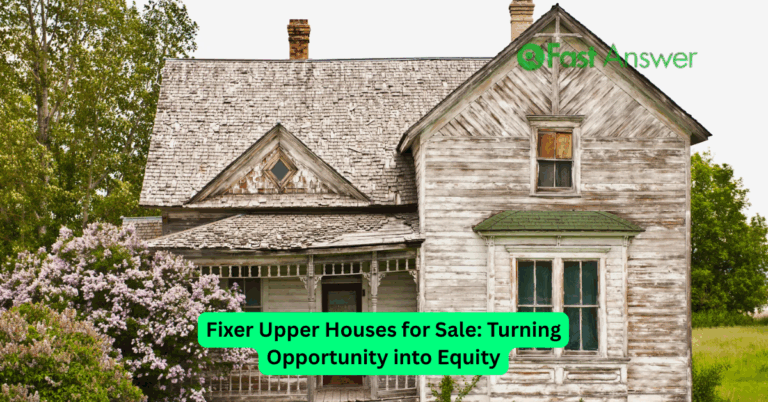Real Estate Content Marketing Ideas: Boost Your Engagement and Attract Clients
In the competitive real estate market, standing out from the crowd is essential to attract potential buyers and sellers. Content marketing provides an opportunity to showcase your expertise, build trust, and ultimately drive more business. However, knowing what content to create and how to engage your audience effectively can be a challenge. In this article, we’ll explore innovative real estate content marketing ideas that will help you build an engaging online presence, provide value to your audience, and increase your lead generation without relying solely on traditional advertising methods.
Blogging for Real Estate: Share Your Knowledge and Establish Authority
Blogging remains one of the most effective content marketing strategies for real estate professionals. By consistently publishing articles that address common questions, challenges, and trends in the real estate market, you position yourself as a knowledgeable expert. Topics could include “First-Time Homebuyer Tips,” “How to Stage Your Home for Sale,” or “Understanding Local Market Trends.” These posts not only provide valuable information but also help with search engine optimization (SEO), improving your website’s visibility and driving organic traffic.
To ensure your blog is effective, focus on creating helpful, well-researched content that speaks to the needs of your target audience. Using keywords like “buying a home in [your city]” or “real estate investment strategies” can increase the chances of your blog post ranking in search results. Additionally, adding visuals such as infographics, property photos, or neighborhood maps can make your blog posts more engaging.
Virtual Tours and Video Marketing: Showcase Properties with Immersive Content
Video marketing is one of the most powerful tools in real estate content marketing. A virtual tour allows potential buyers to explore properties from the comfort of their own home. These interactive tours provide a detailed, immersive experience that static photos cannot. They are especially useful for showcasing larger properties, new listings, or properties that may be difficult to tour in person due to geographic limitations.
In addition to virtual tours, short video clips that highlight key features of a property such as a beautiful kitchen or spacious backyard can increase engagement on social media platforms like Instagram and Facebook. Create a YouTube channel to house your videos, share tips, market updates, and client success stories. YouTube is the second-largest search engine in the world, and by optimizing your videos with the right keywords, you can attract a wider audience.
Social Media Posts and Interactive Content: Engage Your Followers
Social media platforms are an ideal space for real estate content marketing. However, simply posting listings is not enough. To truly engage your audience, you need to create interactive and relatable content. Use Facebook, Instagram, and Twitter to share local market updates, client testimonials, behind-the-scenes looks at property showings, and community events. Polls, quizzes, and surveys are also great tools to boost engagement, encouraging followers to interact with your posts.
Running a “Guess the Listing Price” contest on Instagram or creating Facebook live sessions where you tour properties and answer questions can increase follower engagement. These types of interactive content help build a relationship with your audience and encourage potential clients to reach out when they’re ready to make a move.
Email Marketing: Nurture Leads and Stay Top-of-Mind
Email marketing is another key element of content marketing for real estate professionals. By sending personalized, valuable content to your email list, you can nurture leads over time and stay top-of-mind. Consider sending regular newsletters with updates on new listings, local market news, and home buying tips. Segment your list by buyer type first-time buyers, sellers, investors and tailor your emails to their specific needs.
Another effective strategy is creating a lead magnet, such as a free downloadable guide or checklist (e.g., “10 Things Every First-Time Homebuyer Should Know”). Use this as an incentive to grow your email list. Once you have leads in your email database, follow up with targeted email campaigns that deliver timely content and encourage engagement.
Case Studies and Client Success Stories: Build Trust with Real-Life Examples
Real estate is a relationship-driven industry, and trust is essential. One of the most effective ways to build that trust is by sharing real-life success stories and client testimonials. Showcase how you helped clients achieve their real estate goals, whether it’s selling a home above asking price or finding the perfect property within budget. Sharing these stories humanizes your brand and helps potential clients envision themselves working with you.
Additionally, case studies that detail your strategies for buying or selling a property such as how you helped a seller stage their home for a quicker sale can provide prospective clients with valuable insights into how you work. These types of content not only highlight your expertise but also give clients confidence that you can deliver results.
FAQ
1. How often should I blog for my real estate website?
Consistency is key. Aim for at least one blog post per week to keep your content fresh and relevant, and to maintain a steady flow of SEO benefits.
2. What’s the best way to promote real estate videos?
Share your videos across multiple platforms, including YouTube, Facebook, Instagram, and your website. Use keywords in the video title and description for better discoverability.
3. How can I measure the success of my real estate content marketing?
Monitor key metrics like website traffic, social media engagement, email open rates, and conversion rates from leads to clients. This will help you refine your strategy over time.
4. What kind of content works best for social media?
Posts that are engaging, informative, and visually appealing perform well. Focus on local market updates, client stories, behind-the-scenes content, and interactive features like polls and quizzes.
5. How can email marketing help with lead generation in real estate?
By offering valuable content like guides and market insights, you can capture leads and nurture them over time, increasing the likelihood of conversion when they’re ready to buy or sell.


